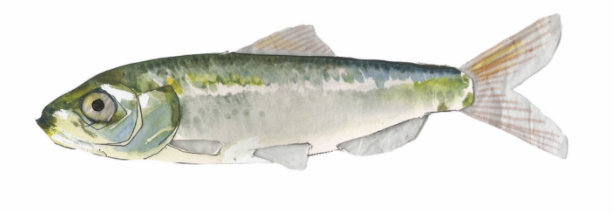
Aquaculture experts from the University of Stirling will take part in an investigation into the impact of climate change on European fisheries and aquaculture as part of the EU Horizon 2020 project ClimeFish.
Co-ordinated by the University of Tromso in Norway, the four-year multi-partner project starts today, with Professor Trevor Telfer of the Institute of Aquaculture leading Stirling’s portion of the study.
The project is important for maintenance of aquatic food security and blue growth as climate change continues to threaten sustainable growth in aquaculture and fisheries worldwide. The world population is growing and demand for food is increasing. Present forecasts indicate an overall decline in food production due to climate change. The ClimeFish project aims to draw focus on utilizing opportunities while mitigating further risks under climate change.
The core goal of ClimeFish is to help ensure that seafood production can increase in areas and for species where there is a potential for sustainable growth, given the expected climate developments, and thereby contribute to both robust employment and sustainable development of rural and coastal communities.
ClimeFish will develop production scenarios that provide inputs to socio-economic analysis and identify risks and opportunities linked to climate changes. The underlying biological models used are to be based upon single species distribution and production, as well as multispecies interactions.
Strategies to mitigate risk and make best use of opportunities will be identified in co-creation with stakeholders. These will serve to strengthen scientific advice and to improve long term production planning and policymaking.
ClimeFish addresses three production sectors: marine aquaculture, marine fisheries and lake and pond production, including 16 case studies and involving more than 25 species.
ClimeFish will provide guidelines on how to make climate-enabled management plans, preparing and adapting to climate change while minimizing economic losses and social consequences. The project outputs will be the ClimeFish Decision Support Framework (DSF), containing guidelines, and databases and the ClimeFish Decision Support System (DSS).
The ClimeFish consortium includes 21 partners from 16 countries, with scientists from both universities, national research institutes and medium-sized enterprises.
Notes for editors
- Background information
Media enquiries to Corrie Campbell, Communications Officer on 01786 466 169 or c.r.campbell@stir.ac.uk.
The Institute of Aquaculture
The Institute of Aquaculture is the leading international centre in its field and is the largest of its kind in the world. The Institute was ranked as the top aquaculture centre in the UK by the 2014 Research Excellence Framework, with 90 per cent of research impact rated as outstanding. The Institute bring together cross-disciplinary, world class researchers to meet the wide range of challenges faced as aquaculture grows to meet global demands. www.aqua.stir.ac.uk.
